Search Results
Showing results 1 to 16 of 16

Natural Selection in Protected and Unprotected Populations
Source Institutions
In this simulation, learners model two elephant seal populations and how they change over time. Learners start with cards representing a variety of seals.

Evolution in Plane Sight
Source Institutions
In this activity, learners model directed evolution by making paper fly. Learners construct and fly paper airplanes.
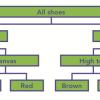
Shoe Dichotomous Key
Source Institutions
In this activity (on page 2 of the PDF under GPS: Cactus Activity), learners will develop their own version of a tool used by biologists, a dichotomous key, by collecting all their left shoes.
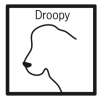
A Recipe for Traits
Source Institutions
In this genetics activity, learners create and decode a “DNA recipe” for a dog by randomly selecting strips of paper that represent DNA.

A Tree of Genetic Traits
Source Institutions
Learners mark their traits for tongue rolling, PTC tasting (a harmless, bitter chemical), and earlobe attachment on tree leaf cut-outs.

Traits Bingo
Source Institutions
In this game, learners cross off or color bingo squares in response to questions about their traits.

Design a Fish
Source Institutions
In this activity (page 2 of PDF under GPS: Alligator Habitat Activity), learners will study the adaptations different fish species have developed to survive in their habitats.
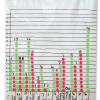
An Inventory of My Traits
Source Institutions
In this genetics meets math activity, learners take inventories of their own easily-observable genetic traits and compare those inventories with other learners in groups.
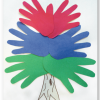
Handy Family Tree
Source Institutions
In this bilingual (English/Spanish) activity, learners create family trees by tracing the hands of their family members.
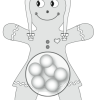
Generations of Traits
Source Institutions
In this hands-on activity, learners track and record the passage of colored "pompom traits" through three generations of gingerbread people.

Guess My Rule
Source Institutions
In this math activity, learners play a game and try to be the first player to identify their partner's rule. Learners identify the rule by finding commonalities between three familiar objects.

Human Traits
Source Institutions
In this activity, learners investigate variations in human traits. This allows learners' natural curiosity about their identity to draw them into the study of heredity.

Making Babies
Source Institutions
This activity is designed to introduce learners to genes, genotypes and simple inheritance patterns.
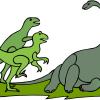
Dinosaur Count and Sort
Source Institutions
In this activity, learners sort and count different colored plastic dinosaurs by various attributes including tail length, whether or not the dinosaurs have horns, etc.
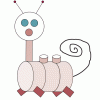
Reebops
Source Institutions
In this genetics activity, learners create imaginary creatures known as "Reebops" to explore the relationships between genes and inherited traits.

Family Traits and Traditions
Source Institutions
In this activity, learners play a matching game with their families to discover common inherited traits and traditions. Learners distinguish between inherited traits and learned traditions.
